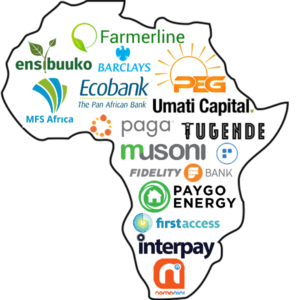
‘Mobile money’ used to be a catch-all phrase, describing everything from consumer wallets to building agent networks, lending, and international remittances.
However, African fintech has gradually matured into an industry with specialist roles, and more players in the market every year.
This shift has seen more companies take on niche roles. This makes strong partnerships between various parts of the ecosystem crucial for the space’s long-term development.
Creating valuable partnerships between fintechs:
There are a huge number of fintechs globally and in Africa, but yet we rarely hear about partnerships between them. This is the current paradox facing the sector. In addition to the number of fintech companies, the widespread use of mobile wallets is enabling companies in other sectors to broaden their service offering to include other financial services. Over time, we can expect to see better products and services at lower cost as fintechs increasingly focus on niche areas, such as merchant services, consumer wallets or remittances. Yet as companies move away from ‘doing it all’, they will need to partner other fintechs to fulfill certain functions of their business.
We are not seeing enough partnerships yet, although there are a few examples. Nomanini has integrated with MFS Africa to enable informal merchants to send and receive international remittances. South African mobile payments solution Peach Payments has partnered with payments management application Callpay to provide automated electronic fund transfers (EFT) to e-commerce platforms. These are valuable partnerships where companies with different focuses blend their expertise to offer a fuller suite of products to their customers with lower capital outlay. They make complete sense for all parties, and will help such fintechs focus and differentiate themselves from the competition. One problem might be that in an industry as dynamic as fintech, it is difficult to get the necessary overview of the ecosystem to identify opportunities for partnerships. The African Fintech Unconference, organised by Nomanini and FIRB, helped to fast track partnerships among fintech actors in Africa. Participants collectively mapped the African fintech ecosystem and discussed key opportunities and challenges for fintech in Africa. A summary of the event is available.
Partnerships between banks and fintechs:
It might sound unlikely, but fintech startups can learn from incumbent banks when it comes to the importance of building partnerships. There has been much talk of banks facing extinction if they don’t find ways to work with fintech innovators. This is probably over stated, but over the course of the last years we have certainly seen a shift in the relationship between fintechs and traditional banks. Various banks across Africa, most notably Barclays with its Cape Town-based accelerator and Standard Bank with its incubators, are actively seeking to work with fintechs. Barclays has signed proof of concept arrangements with a host of startups, while Standard Bank acquired mobile payments startup SnapScan.
This acceptance of the need to work with fintechs has stemmed from a growing realisation by banks that building innovation in-house is slow and expensive, and that certain customer segments require faster innovation and agile customer support. Many fintechs are also focusing on underserved segments that incumbents don’t reach. These partnerships are also important for fintechs. The view that fintech innovators will single-handedly penetrate a market is being replaced by the acknowledgment that they are, in fact, reliant on each other for success. Banks have the licences, understand complex regulatory compliance, and have access to a large customer base that fintechs would find nearly impossible to build for themselves, especially with no existing brand and little capital.
What started as mutual distrust is growing into mutually beneficial partnerships. We can expect to see many more such partnerships in the coming months and years. Relationships will only improve as fintechs gain a better understanding of what banks are looking for, and learn how to better position themselves to add value to large financial institutions.
The benefits of cooperation:
The increased willingness of banks and fintechs to work together will be of great benefit to the development of the African fintech industry. It is critical now that we start to see more partnerships between fintechs themselves to widen their product offerings to give the best chance of survival in a busy market. Financial services as a whole across Africa is consolidating, demonstrated by the failure of a number of banks in Kenya in recent years. This was inevitable in a country where 42 banks served 44 million people, compared with 22 banks serving 180 million Nigerians. Given the huge growth in the number of fintechs, many of them operating in the same spaces, such consolidation will surely occur here. In the meantime, fintechs should take a page out of banks’ books and ensure they cooperate in order to spread as wide a net as possible and to ensure they have a future in Africa’s burgeoning fintech space.
